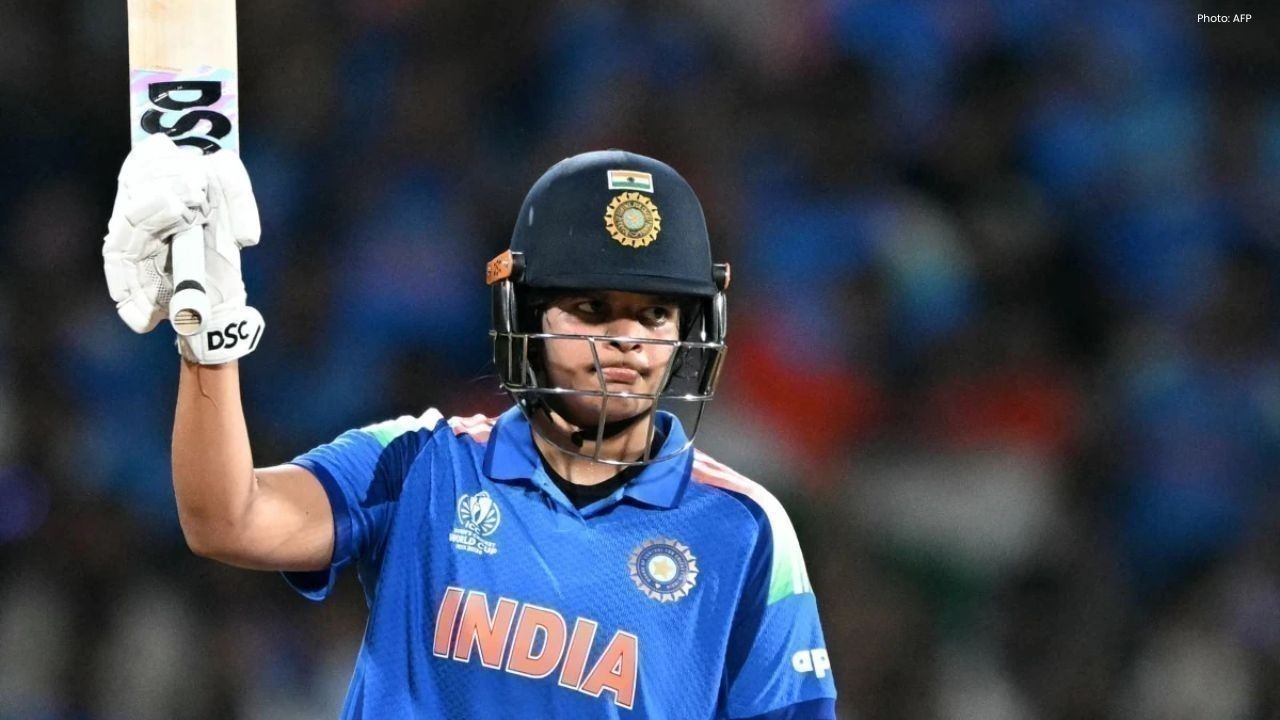
Post by : Anis Karim
Education in India has always carried immense cultural and emotional weight. Families invest not just money but dreams into the learning journeys of their children. For decades, the system revolved around textbooks, teachers, memorisation and rigid classrooms. But by 2025, India stands at the cusp of a massive transformation. Artificial intelligence, adaptive learning platforms, smart classrooms and skill-based approaches are reshaping how children and youth learn, think, explore and evolve.
AI is not merely an add-on to education; it is becoming a central part of how knowledge is delivered, interpreted and mastered. From personalised lessons that adapt to student pace, to AI tutors that clarify doubts instantly, to learning analytics that spot gaps before they become bigger barriers, the future of Indian education is shifting toward individualised guidance and continuous skill development.
This evolution carries profound implications—not only for academic progress but for confidence, creativity and employability. Indian youth are entering a world where adaptability, digital fluency and emotional resilience are just as important as academic scores. AI-driven education aims to meet these evolving needs.
For years, the Indian education system struggled with a few deeply rooted challenges: overloaded classrooms, varying teaching quality, wide learning gaps, exam-driven motivation, and unequal access across regions. While urban schools embraced technology earlier, rural and government schools often lagged behind.
Traditional teaching methods, though impactful, were unable to fully address the diverse learning styles and speeds of millions of students. Some children raced ahead; others silently fell behind. Many students memorised content for exams without truly understanding it. Skill development remained limited. Real-world application barely made its way into everyday classrooms.
The pandemic years exposed the vulnerabilities of this system. It also accelerated the adoption of digital tools. By 2025, India realised that the future of education could not be built on one-size-fits-all models. AI and adaptive learning emerged as powerful solutions capable of bridging gaps, personalising learning, and supporting teachers rather than replacing them.
Many imagine AI in education as robots or futuristic screens, but the reality is far more grounded and accessible. AI works behind the scenes, analysing student performance, identifying strengths, highlighting difficulties and adjusting content accordingly.
In classrooms, teachers now use AI-powered dashboards that show real-time insights: which students are struggling with a concept, who needs extra practice, who is ready to move ahead. This allows teachers to provide targeted attention rather than generalised instruction.
AI-based learning apps explain concepts visually and conversationally. Students can clear doubts instantly—even late at night—because AI tutors are always available. Digital textbooks come with interactive elements that adapt based on responses. Practice tests become smarter, offering questions that challenge each student at the right level.
AI also helps in evaluation. Instead of only relying on final exams, schools increasingly use continuous assessment where AI identifies patterns, improvements, and areas needing reinforcement.
The classroom, once rigid, is now dynamic.
One of the most powerful shifts in 2025 is the rise of adaptive learning systems. These platforms adjust the difficulty, speed, format and type of content based on each learner’s performance.
If a student struggles with fractions, the system breaks down the concept further, offers simpler explanations, provides visual examples and reinforces practice until clarity emerges. If another student excels, the platform challenges them with higher-level problems, ensuring progress is proportional to capability.
Adaptive learning helps shy students who hesitate to ask questions. It supports learners who require extra time without making them feel left behind. It also engages fast learners, preventing boredom and stagnation.
This individualised approach enhances not just academic growth but also confidence. Students feel supported, understood and valued—something large traditional classrooms often struggled to deliver.
Despite fears that AI might replace teachers, 2025 has proven the opposite. Teachers have become more important than ever, but their roles have evolved. Instead of spending time on repetitive tasks like grading worksheets or dictating notes, teachers now focus on mentorship, creativity, discussion, emotional support and real-world application.
AI handles routine processes, but teachers manage motivation, empathy, discipline and inspiration—the human elements that technology cannot replicate.
Teachers also guide students in interpreting AI-generated feedback, ensuring they understand how to improve rather than simply following automated suggestions. This synergy between human insight and digital precision makes the classroom more holistic and emotionally grounded.
AI has become the teacher’s assistant, not the teacher’s replacement.
One of the biggest promises of AI-driven education is its potential to reduce longstanding urban–rural disparities. Students in remote and underserved regions often lacked access to experienced teachers, rich learning materials and personalised support.
By 2025, adaptive learning apps and AI tutors have reached many such communities through low-cost smartphones, government initiatives and digital education programmes. Even where classroom resources are limited, AI ensures children are not deprived of personalised learning.
For the first time, students in rural areas can learn coding, robotics, spoken English, science experiments and higher-level mathematics through AI-supported platforms. Parents see improved confidence in their children, and teachers feel empowered rather than burdened.
This democratisation of quality education may become one of India’s most important achievements in the coming decade.
The world is changing rapidly, and jobs of the future demand skills that go beyond textbooks. AI and adaptive education are pushing Indian youth towards learning that is practical, creative and future-oriented.
Skill-based education now includes modules on coding, data literacy, financial understanding, communication, problem-solving, teamwork, design thinking and emotional intelligence. AI tracks student strengths and suggests skill paths that align with their interests and aptitude.
Young students discover capabilities early—whether in writing, animation, science projects, entrepreneurship or technology. With personalised suggestions, they can develop expertise systematically rather than by chance.
This shift prepares youth for a dynamic workforce where adaptability is the most valuable currency.
Traditional exams often measured memory more than understanding. The pressure around marks overshadowed the joy of learning. In 2025, AI-driven evaluation systems have introduced a more holistic approach.
Students now undergo multiple small assessments that track progress over time rather than relying solely on a final test. AI creates practice sets targeted at weak areas, ensuring mastery before moving forward.
This reduces exam anxiety and builds true competence. Teachers receive deeper insights into student progress, enabling customised support.
The focus has moved from “How much did you memorise?” to “How much did you understand and retain?”
India’s ed-tech landscape has grown into a vast ecosystem in 2025. Learning apps, VR-based science modules, AI tutors, adaptive curriculum designers, coding platforms and digital classrooms work together to enrich education.
Startups are developing solutions tailored to schools, home learning, competitive exams, skilling and vocational training. Many platforms have integrated regional languages to reach students beyond metro cities. Some use gamification to make learning engaging. Others build advanced analytics tools for institutions.
This vibrant ecosystem supports parents, teachers and students, giving them more choices and flexibility.
AI-based education systems in 2025 do more than academic tasks—they also identify signs of stress, burnout, disengagement or emotional imbalance. Learning analytics can sense when a student’s performance dips suddenly or when engagement drops.
Some apps gently prompt students to take breaks, practice mindfulness or seek support. Teachers receive alerts when students may need emotional attention.
This integration of wellness into the learning cycle is crucial in a time when academic pressure, digital overload and competitive environments affect youth mental health.
AI cannot replace human empathy, but it can help ensure emotional struggles are not invisible.
Despite the progress, challenges remain. Not all schools have the infrastructure needed for seamless adoption. While smartphone penetration is high, internet stability varies widely. Teachers need continuous training to adapt to new tools. Parents must understand how AI supports—not replaces—traditional learning.
Data privacy is another concern. With AI analysing student behaviour, strong safeguards are essential to protect personal information.
The transition is ongoing, but the direction is promising.
The next phase of education in India will go even further. AI will become more intuitive, understanding emotional context, learning styles and motivational triggers. Virtual and augmented reality may bring immersive science labs, historical recreations and simulated problem-solving scenarios into homes and classrooms.
Students will follow personalised curriculum paths that align with career interests. Learning will become flexible, with options to combine academic knowledge, vocational training and creative exploration.
The biggest change will be the shift in mindset. Indian youth will see learning not as an academic obligation but as a lifelong journey supported by technology, mentors and evolving opportunities.
The future of learning in India is not defined by machines replacing humans. It is defined by technology amplifying human potential. AI and adaptive education are helping Indian youth understand themselves better, learn at their own pace, build real skills and prepare confidently for a shifting world.
This transformation is deeply human at its core. It focuses on empowering teachers, supporting parents, and giving children the education they truly deserve—personalised, modern, inclusive and emotionally balanced.
The classrooms of 2025 mark only the beginning. India is entering a future where every learner can grow in their own unique way, guided by innovation and strengthened by opportunity.
This article provides general insights on evolving educational trends in India. It should not be taken as professional academic or policy advice. Readers are encouraged to verify institution-specific practices and guidelines.

48 Horses Compete In Seventh Trial Race At Meydan
48 purebred Arabian and mixed-breed horses raced at Meydan Racecourse in Dubai, marking the seventh

325 Shooters To Compete In UAE Weapons Championship At Al Ain
Over 325 male and female shooters will compete in the fourth leg of the UAE Licensed Weapons Shootin

Emirati Champion Abdul Rahman Wins Gold At Jiu-Jitsu Worlds
Emirati athlete Abdul Rahman Ahmed Abdul Haq wins gold in the 56kg category at the Abu Dhabi World P

UAE Jiu-Jitsu Federation Launches 24-Hour Hotlines for Support
The UAE Jiu-Jitsu Federation launches 24-hour hotlines to assist athletes and visitors during the Ab

UAE Promotes Women’s Role in Equestrian and Tent Pegging
The UAE Equestrian Federation has approved women’s participation in tent pegging championships, supp

Vijay Deverakonda’s Emotional Speech for Rashmika Mandanna Wins Hearts at Her Film Celebration
Vijay Deverakonda’s heartfelt words for his fiancée Rashmika Mandanna at The Girlfriend celebration

Jonathan Bailey Wins Hearts with His Stylish Fashion Choices
Actor Jonathan Bailey’s recent looks—from formal wear to casual charm—show his smart, confident, and

Haryana CM Honors Shafali Verma For World Cup Triumph
Haryana CM Nayab Singh Saini honored cricketer Shafali Verma with ₹1.5 crore, a Grade A certificate,

Bavuma Confident As South Africa Face India In Test Series
South Africa begin their Test series against India aiming to prove their World Test Champion status,

Mark Wood Injury Raises Concern Before Ashes Test In Perth
England pacer Mark Wood left the field with hamstring stiffness during a warm-up game, creating conc

Nelly Korda Ready For Comeback At The Annika Tournament
After five weeks off to recover and train, Nelly Korda returns to LPGA’s The Annika event, aiming to

Nikola Jokic Scores 55 As Nuggets Beat Clippers 130-116
Nikola Jokic scored a season-high 55 points to lead the Denver Nuggets to a 130-116 win over the Los

Mahmudul Hasan Joy Shines With 169* As Bangladesh Dominates
Mahmudul Hasan Joy’s unbeaten 169 powered Bangladesh to 338/1 on Day 2 of the Sylhet Test, giving th

Shane Watson Joins Kolkata Knight Riders As Assistant Coach
Former Australian all-rounder Shane Watson has joined Kolkata Knight Riders as assistant coach for I

India Drops Nitish Reddy For Kolkata Test Against South Africa
India released Nitish Kumar Reddy from the Test squad before the Kolkata match against South Africa,